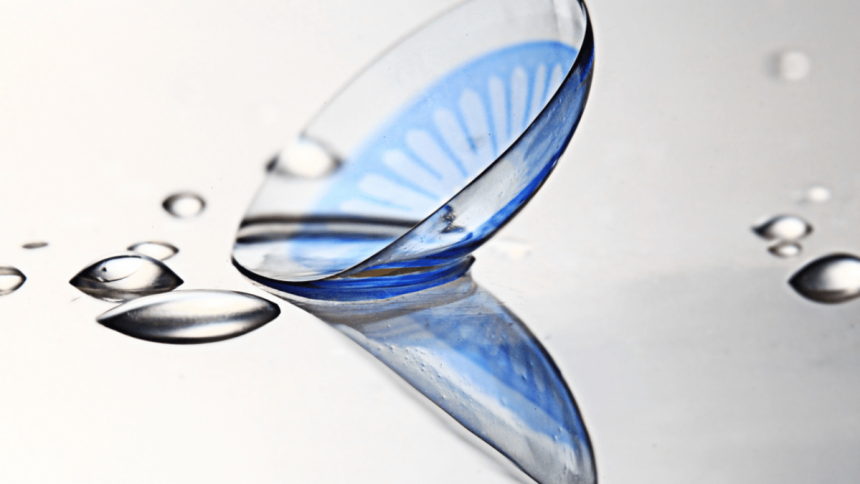Many contact lens wearers find themselves in situations where they run out of contact solutions. Knowing what to do in such instances is crucial for maintaining eye health. This article explores the alternatives and the risks involved.
Whether you are a seasoned contact lens wearer or a newbie, understanding the do’s and don’ts of lens care is essential. This guide will help you navigate through some common questions and offer practical solutions to ensure your eyes remain safe and healthy. Let’s dive into the details.
Why water is not a safe alternative
You might wonder, can I put my contacts in water? The answer is a resounding no. Water, whether it’s tap, bottled, or distilled, is not sterile and can contain harmful microorganisms. It’s essential to know that these microorganisms can attach to your lenses and lead to severe eye infections. According to the Centers for Disease Control and Prevention (CDC), Acanthamoeba keratitis is one such infection that can cause vision loss if not treated promptly.
The composition of your contact lenses also makes them unsuitable for water exposure. Lenses are made to be kept moist with solutions that match the salinity and pH of your tears. Water can cause lenses to swell, change shape, and even adhere to your cornea, leading to discomfort and potential damage.
Moreover, water’s surface tension differs significantly from that of contact lens solutions. This difference can cause the lenses to tighten and warp, potentially leading to microscopic tears. These tears can create entry points for bacteria and other pathogens, increasing the risk of eye infections. Additionally, the chlorine present in tap water can be irritating to the eyes and may cause discomfort or redness when it comes into contact with your lenses.
Water also lacks the disinfecting properties found in contact lens solutions. These solutions are specifically formulated to eliminate harmful microorganisms and remove protein buildup on your lenses. Without proper disinfection, your lenses can become a breeding ground for bacteria, increasing the risk of eye infections such as conjunctivitis or keratitis. Even if the water looks clean, it can contain invisible contaminants that pose a threat to your eye health. Therefore, it’s crucial to always use approved contact lens solutions to clean, rinse and store your lenses.
Consider carrying a travel-sized bottle of contact lens solution as a backup, especially if you use a brand like Precision 1 that offers convenient single-use vials. This way, you’ll be prepared for unexpected situations and ensure the safety of your eyes.
What to use instead of contact solution
If you’ve run out of contact solution, you may ask yourself what to use instead of contact solution. In a pinch, it might seem like using water or homemade saline could work, but this is a dangerous misconception. Instead, try to purchase travel-sized bottles of contact lens solution as a backup or keep extra bottles at home.
In situations where you can’t immediately get more solution, your best bet is to remove your lenses and store them in a clean case until you can access proper care products. Inserting them back into your eyes without appropriate disinfection could lead to severe complications.
The risks of using non-sterile liquids
Can you put contacts in water? Using non-sterile liquids like water or saliva for storing your lenses is highly risky. These liquids harbor bacteria and other pathogens that are harmful to eye health. The American Optometric Association warns against using anything other than solutions specifically designed for disinfecting contact lenses.
A study published in the British Journal of Ophthalmology found that people who used non-sterile solutions were significantly more likely to develop eye infections compared to those who adhered strictly to recommended practices. Your eyes are incredibly sensitive organs that require specific care routines to avoid long-term damage.
Proper lens care practices
Maintaining proper lens care practices is crucial for avoiding complications. Always wash your hands before handling your lenses and use fresh contact lens solution each time you clean and store them. Do not reuse old solution as it loses its effectiveness over time.
If you ever find yourself questioning can I put my contacts in water, remember the risks involved and opt for safe alternatives instead. Investing in good-quality contact lens solutions and following expert guidelines can save you from potential eye issues down the road.
Lynn Martelli is an editor at Readability. She received her MFA in Creative Writing from Antioch University and has worked as an editor for over 10 years. Lynn has edited a wide variety of books, including fiction, non-fiction, memoirs, and more. In her free time, Lynn enjoys reading, writing, and spending time with her family and friends.















